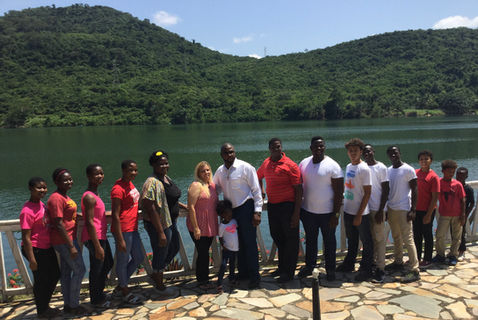Cultivating Creativity: Part 2
- Stacy Omorefe
- Jun 29, 2018
- 2 min read

Thank you to everyone who has been so kind to respond to my last post. We are so grateful for your input and ideas.
As we continue to talk through the challenges of cultivating creativity within our community, one of the major challenges that we run into is how the Ghana Eduction System (GES) is set up. GES uses Rote learning, which basically means that the children are required to memorize exactly what their teacher tells them and later produce that information word per word, otherwise they will be penalized on their scores.
The Rote learning approach is very different from the way I learned in the US, which uses the Meaningful learning approach. We were taught to not copy straight from the book and to process the information for ourselves.
My 5 year old is in preschool. The other day she was given an assignment to draw baby Moses in the basket. She did as she was asked and drew a little stick figure baby in a oval and colored it in. She was given a 60% by her teacher and told it wasn't nice. My little girl suffered a stroke when she was 1 year old. This stroke left her paralyzed in her right hand, so she uses her left hand to write. These low scores in creativity have damaged the way that she looks at her ability to create. At the age of 5 her ability to be creative should be praised and encouraged instead of graded and quenched. This is not to condemn the teacher but to shed light on the fact that things are so cut and dry. Since she was able to produce something that proved she understood the concept she should have received a passing score.
This is just one example of how Rote learning has put a restraint on creativity within our schools.
Another challenge is when our JHS3 students go to take their Basic Education Certifiction Examiniation (BECE). They are required to memorize all of the material that they will need to know for the exam. If they aren't able to produce the information they will not be able to get into a high performing Senior High. This lessens their opportunities for higher education.
So this takes me back to my question from yesterday's post.
"HOW?"
How do we cultivate creative spaces for education within a system that is only tested on memorization and the ability to produce exact replicas of what is given to them in "creative art" class.
Is it profitable to teach creativity or to ask the teachers to teach more creatively when the students may be penalized for spending that time they could be using towards memorizing in a creative way?
How can we ask our teachers, who were taught through Rote learning, to come up with creative lessons when what is most familiar to them is Rote learning?
Again, I would so appreciate your feedback and any ideas you may have to help us as we plan for this next academic year.
💛
























Comments